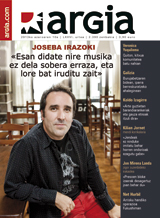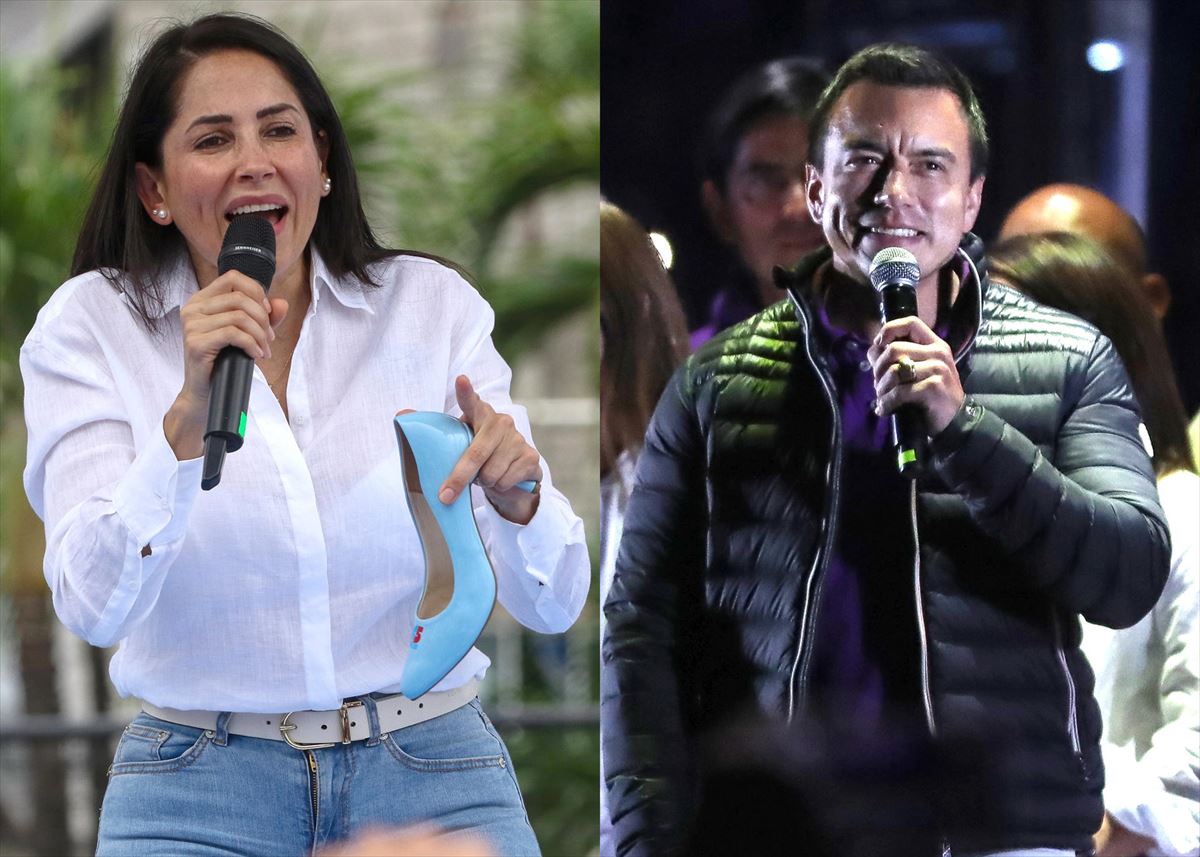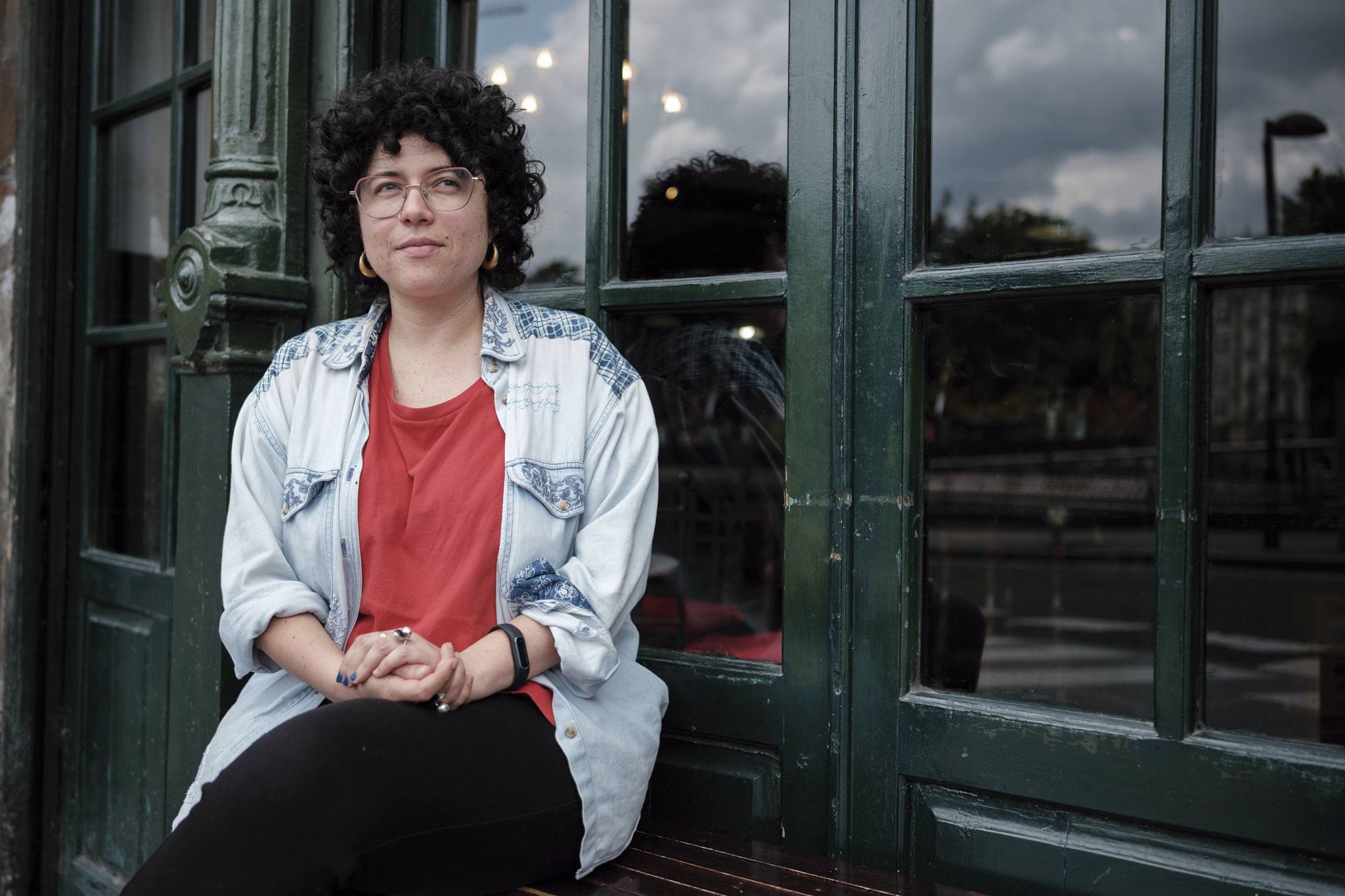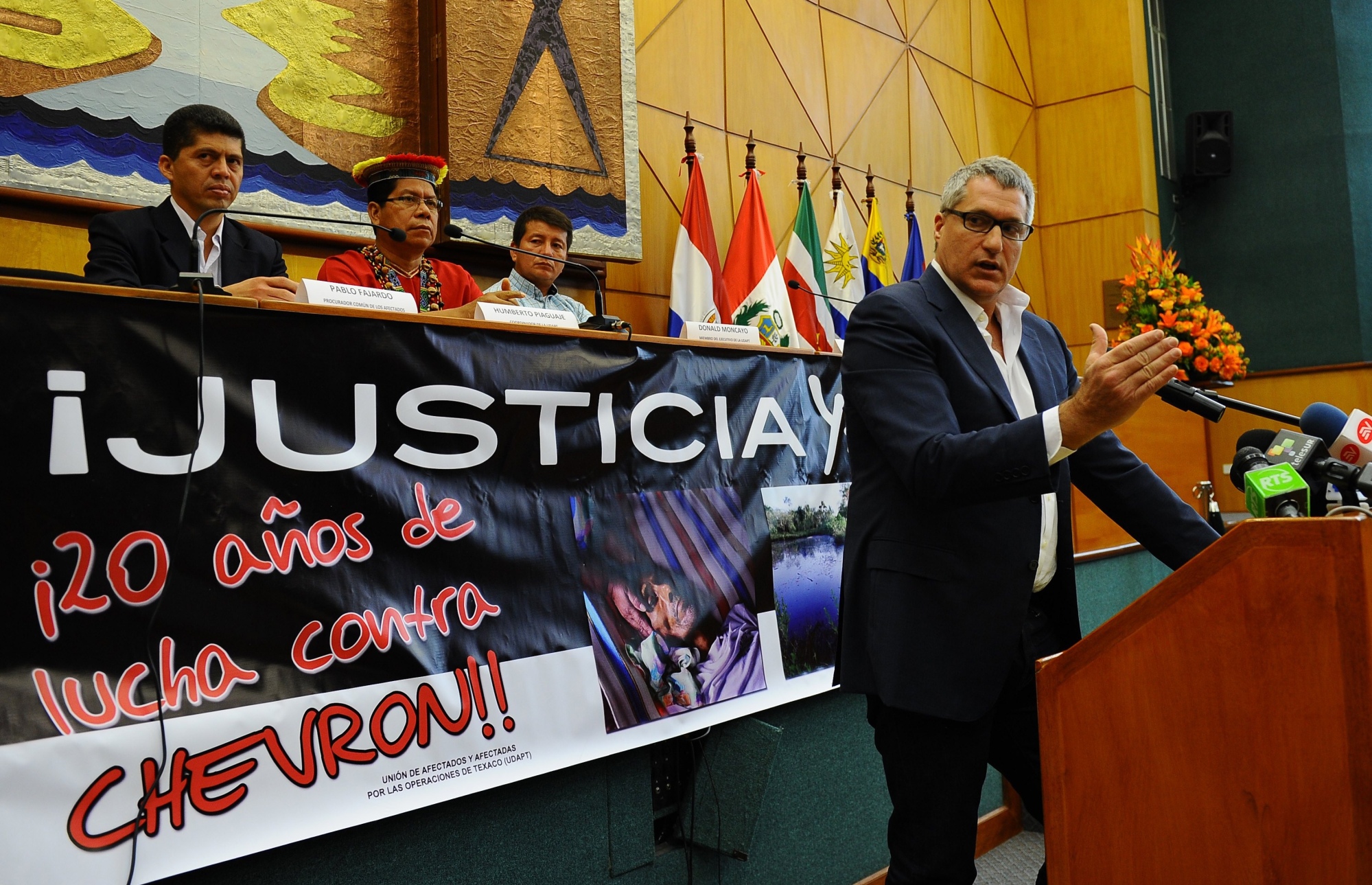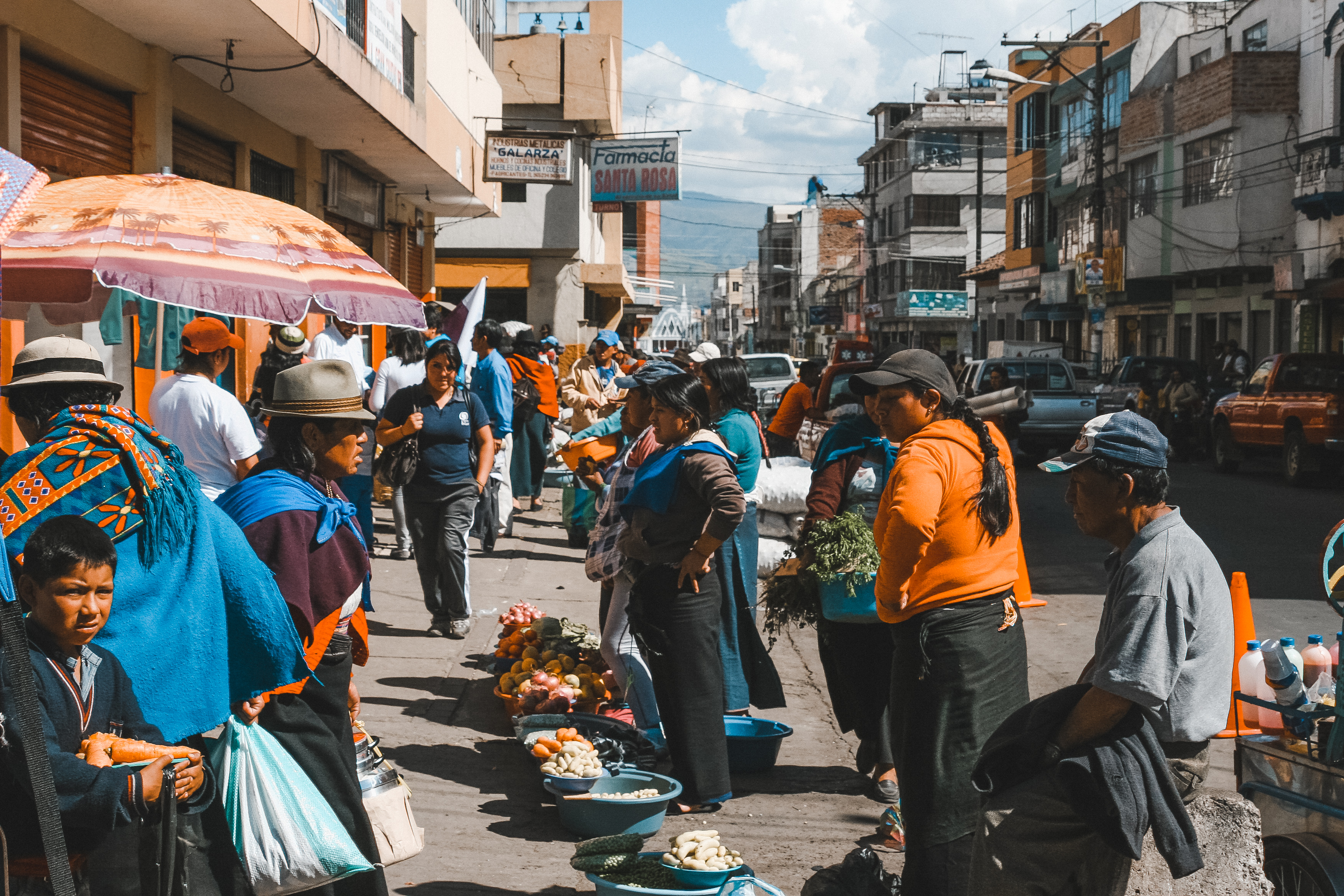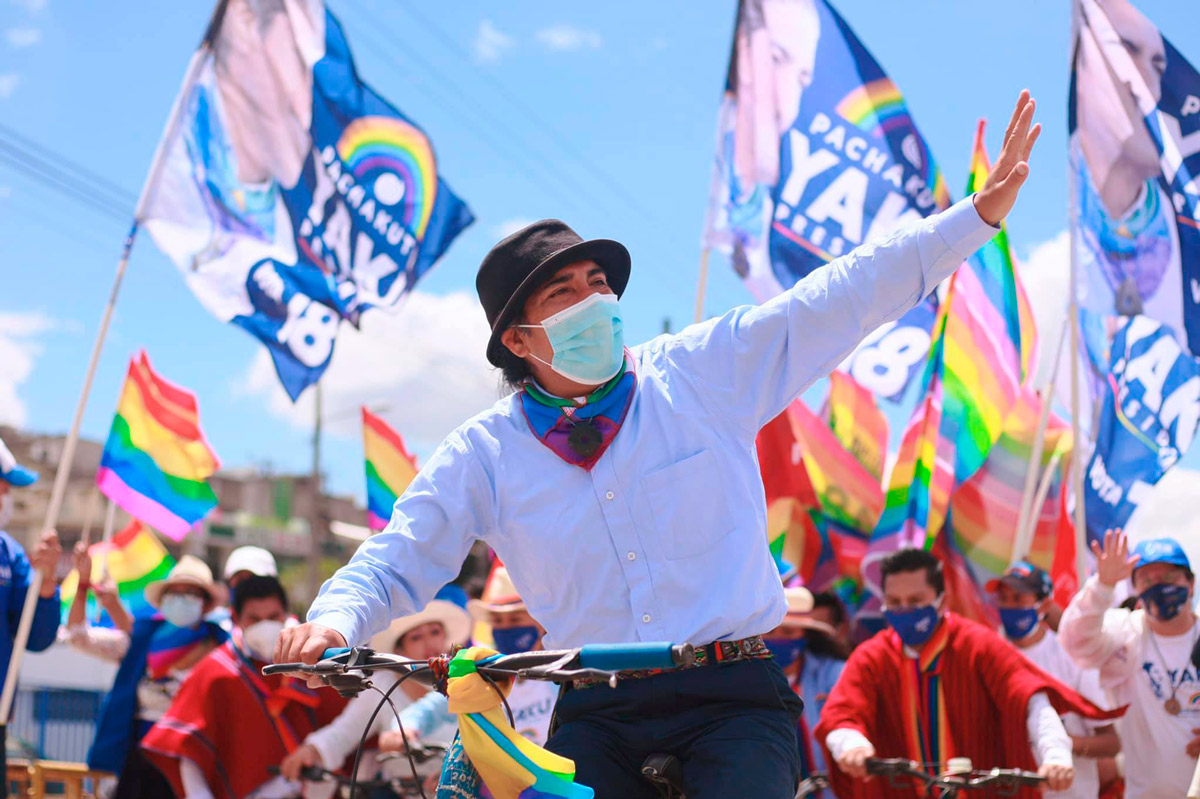"In the city we are claiming an indigenous people"
- “I am a member of the Kaypi mi kanchi community, of the Quechua community being formed in Quito, Ecuador. We want to revitalize our language, but also to reclaim the community in the capital, because we believe that our land of origin is all of Ecuador.” Veronica Yuquilema is a presentation made about itself by the student. He participates in the Strategies for the Revitalization of the Original Language of Garabide and HUHEZI.
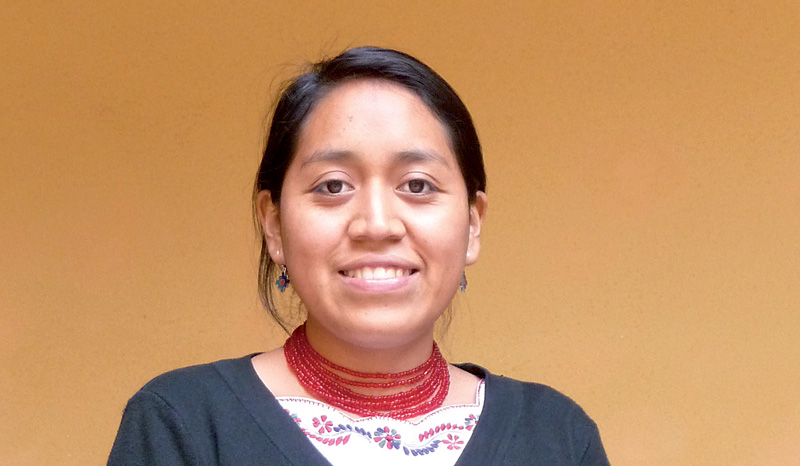
Where is the need to reclaim language and community in the city?
Several studies have been carried out and, among other aspects, seeing the migration from rural areas to the city, we believe that in the urban center we can also claim our community. The Quichua community in the capital is a way of claiming that the centre is the space of our peoples of origin. That is why we are claiming an indigenous people in the city.
Are all the members of the community quiches?
Most of the people we are in the community are quiches but not all of us do it with the quichu, for different reasons: because of the migration from the country to the city, because in this migration the parents stopped talking with their children and because in the big cities education is only in Spanish.
In some centers there is a bilingual education, but in them Quechua is just a subject, they don't give math, literature and the rest for Quechua. This has been one of the major problems of the bilingual education structure in Ecuador.
It is a problem of years, because it is the time that a bilingual education was established in Ecuador.
According to the Constitution, Quechua is a co-official language in the country and Ecuador is plurinational and multicultural. The State should take these two characteristics into account, but in reality it does not.
In the 90s, approximately, we were able to see the results of different struggles, including bilingual education. Over the years, decision-making autonomy has gone from scarce to dependency on government, so bilingual education is now in a very critical situation. Most of the centers they offer are in rural areas, and only a few in the middle, in cities. In rural areas where there has been no migration, the transmission of the language has been maintained. And I think our community is still alive because of that, because in the communities they continue to talk about Quechua with their children, with their grandparents, with their parents… In the cities they sometimes maintain that attitude, but it is much more difficult, because in the areas where there are a lot of people, education is only in Spanish.
Where did you learn Quechua yourself?
I never received the education kit, which I know I've received from my parents, grandparents and current environment. I lived in the city and had to suffer a lot of discrimination. And yet, my parents never told me not to talk kichu, not to wear my clothes or not to go to rural areas.
So, you've known family transmission.
That is, for those of us who have been in the community so far, family transmission has been important. To become aware of this and in daily life. And yet, when I arrived in Euskal Herria, I realized that we have neglected a few things: we have continued to write in Spanish, we have thought and written in Spanish or sometimes we have thought in Spanish and we have written in Quechua.
In the case of community members who are leaving the language, how do you warn of the importance of maintaining the language?
It's very difficult. We, as a community, are starting to take quite concrete action. One of them was videos to give prestige to the language. Through the audiovisual we wanted to spread the message “Perhaps in the 1990s there were not many indigenous people in the university but today there are people ready”. In fact, the lack of prestige has happened to all the original languages: we have denied what is ours, what we are has no value or meaning, it does not come within a pre-established structure, we have no place as a people and therefore we have to deny what we are to occupy our place within the city. The system has led us to that.
And what reception did the videos you mentioned have?
My father has taught them at school, because the idea of teaching Spanish at school is becoming more widespread, because at home they will be taught the quichu. But it's not, it's all a process.
When I showed the videos, people started to realize what was going on, because we're not aware that our languages are disappearing, there's no awareness of the language problem. Once the situation has been presented as a problem, people are thinking about things and are aware of what is happening. This has helped us to strengthen ourselves a bit as a community and to reclaim certain things, because so many discriminations have made us give up on ourselves.
In areas where several languages live together, it is becoming increasingly common to confuse them. How do you experience it in your home?
In areas like ours there are many areas that need to be worked on, for example, family transmission, the corpus, the media, education… You can take some paths, but you will not develop them all at the same level; here, for example, terminology has developed, there are dictionaries, but sometimes people’s search for words becomes a process in which we have to work. When they talk about quechua in communities, sometimes they use words in Spanish: The words ‘computer’ and ‘cell’ have translation but are still used because the words created do not adapt to everyday life. There's no fixed corpus group, and there's things like that hanging out.
In addition, we have immersed ourselves in learning the main languages that will serve us to meet other countries in this globalised world, forgetting our own.
There is still the idea of low-level languages and status, and that hierarchization of languages is still being done. Minority languages are, of course, at the lower level, so those of the communities, the rural, have to speak and those of the cities should not use them because they go backwards.
We continue to live in this situation despite the fact that the government has begun to use the languages of origin to politicise, that is, not to strengthen the language, but to make known the thinking of Western society.
This is another battle framed in the challenge of boosting the language, since Quechua is used by the president of Ecuador, who a few words ago. With Ecuador as a plural nation and culture, the president has an obligation to speak, he is not doing us a favor, but he should master the 13 languages of the state, not just Quechua. All quechua's messages are to explain the government's pros and to talk about the structure of the state, and that's another way to keep dominating us.
We have to locate in Quito the community that is being formed. How do you get together in a city of so many millions of people?
We have advantages and disadvantages. One of the advantages is that there are a lot of people, indigenous people who have gone from different provinces to study or work in Quito. A small percentage of the intra-Community population has already earned a university degree, which has enabled a number of common objectives to be set. At the time of study, you feel marginalized: you come from a small town and there you can go to your community and go home, in the city it is different. That's what we had in common: the desire to regroup our community in a broad space, with great abstractions in the environment, and that offers many ways to push the human being towards himself.
In this context, we managed to consolidate a group. At first we were ten and we wanted to expand the community to more people, but they came to us with other objectives: to have a group of friends in the city, to bring the group to the field of politics… Today we are 15-20 people, most of them come from the field of social communications.
The process is a little complex, because being trained in an individualistic and competitive system leads to problems in a community. We have seen some problems of this kind, but now we intend to register Quechua as a community. At the moment we are in the process of reflecting, taking decisions and setting more concrete objectives that we can achieve in the medium-long term. Because we're there in the community, but what can we offer other people? What can we coordinate with the other institutions and initiatives?
In addition to the work we can do in the city, we have wanted to analyze how the new community will allow strengthening our communities of origin, for example, through formative processes; or how this community can help us to return to our community of origin.
Being communication people in the community, is it an area where you look in particular?
One of the dreams of the community was to delve into the world of folds, because most people in the community have learned social communications. There's a lot of interest in the media, and we think that can be one of our strengths, because we have people who are technically educated. Now, our duty is to immerse ourselves more in the world of language and to see what strategies, for example, linguistic transmission through the media can bring. These are the future intentions.
You are participating in the title of Strategies for the Revitalization of the Original Language of Garabide and HUHEZI along with other members of different communities. For what purpose has postgraduation started?
We have many aspirations and possibilities, because coming to Euskal Herria means looking for new challenges to strengthen the community we want to implement in Quito. I believe that the process followed by Euskal Herria, the tools and strategies used here, can serve as an example of use in a specific area.
On the other hand, we want to share the activities we have carried out there as a community. And, of course, also know the rest of the people of origin who are in the degree.
You've been here for a few weeks. Have you been surprised?
A colleague of mine was here a few years ago, and before I asked him, I thought you had another system here that wasn't capitalism. Seeing that you have fought so much for language, I thought it would be on another stage, more communal. My colleague explained to me that I would not find a system like the one I expected, which here was also similar to that there, a more capitalist, more European system.
However, I believe that what has to be highlighted is that there was and is an original people here, and that this people fought for something, for language. You have received quite clear results, for example, the fact that the Basque country has come to university. In the universities of Quito I will not hear about Quechua and here I see “modern” young people speaking in Basque. That makes me illusion and hope, even to say “that’s what we want.” But wanting also means thinking about how to do it, we as a Quechua, in community life, we always think about a system other than capitalism. I do not want to call it a left-wing or right-wing model, for me it is our model, which existed many years ago, before the Spaniards arrived, and which is still being maintained in rural communities. Teamwork for the community (minga), exchange (makipura)... these characteristics have not been completely lost and show us that there are not only certain systems that promise, but also other community systems, ours, that we must remember to maintain and strengthen them.
You are getting to know different places and projects.
The other time we were at Tafalla, at ikastola, and it was very nice because young children were speaking in Basque. In Ecuador we will not yet be able to create a school with those infrastructures, but to begin with, in a small house we will be able to teach Quechua to children.
I have a cousin who only made a quichu until he was five years old, went to school and the teacher, although he was also indigenous, told him that in school he did not have to speak Quechua, but Spanish. The child no longer speaks Quechua and although we do it with the quichu, he responds in Spanish. Here, on the other hand, they encourage them to speak in Basque and it's one of those experiences that you're left in.
This experience helps you move forward.
Above all on this issue of linguistic revitalisation is our historic journey. That allows us to look forward, that historical burden pushes and forces us, and gives us the responsibility to continue to reclaim our community and our language. Our parents, grandparents, did everything possible to ensure that we had education and other living conditions that we have now. Not everyone, but those of us who have received an education now want that education to be the one we have given from our perspective and in our language. Our ancestors never stopped speaking their language despite having lived over 500 years of colonization. It is now we who have to take the witness and continue the work they have undertaken. It is our responsibility, our obligation, that we are not doing a favour to language, but that language gives us the opportunity to translate the effort made to our elders.









